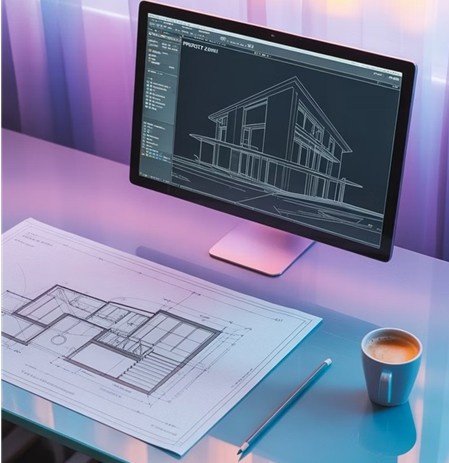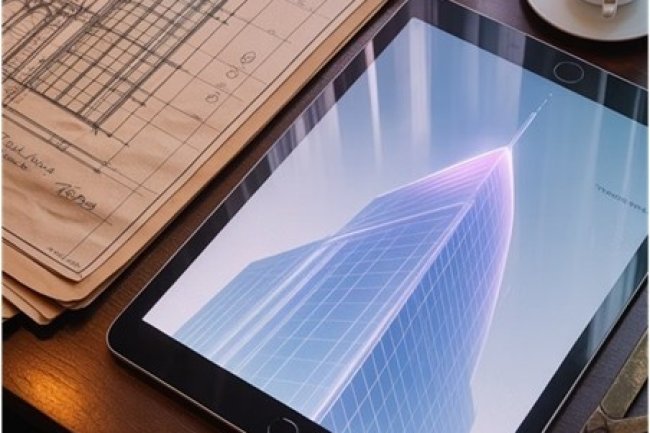AI-Powered Raster to CAD: Transforming the Drafting Landscape
How new technology is revolutionizing the way construction and design professionals convert paper plans to digital formats4saving time, reducing errors, and creating new opportunities for property developers and architects.

The Evolution of Drafting: From Paper to Pixels
|
For decades, the conversion of paper plans to digital formats has been a tedious, manual process:
Until recently, the industry accepted these limitations as unavoidable costs of doing business. |
|
How AI-Powered Conversion Actually Works
-
Image Capture & Processing
Scan paper drawings using standard equipment or even smartphones. Advanced algorithms enhance image quality by correcting distortion, fading, and poor lighting conditions. -
Pattern Recognition
AI analyzes the raster image, identifying lines, symbols, dimensions, and text. It distinguishes between elements like walls, doors, windows, and electrical components. -
Intelligent Conversion
Machine learning algorithms convert identified elements into proper CAD entities, creating intelligent objects rather than simple lines. Dimensions are preserved, and text is captured through OCR technology. -
Quality Assurance
AI performs error checking, while human experts review critical elements. This hybrid approach, used by providers like Consac, ensures accuracy while dramatically reducing processing time.
Real-World Benefits for Construction Professionals
-
Time Savings
Projects that once took weeks can now be completed in days or even hours. A typical set of residential construction drawings can be converted in 1-2 hours versus 2-3 days manually. -
Cost Reduction
Labor costs drop by 70-80% with AI-assisted conversion. Drafters can focus on high-value design work rather than tedious tracing, improving both efficiency and job satisfaction. -
Improved Accuracy
AI tools achieve consistent precision that human drafters struggle to match, especially with complex drawings or under tight deadlines. Error rates decrease by up to 85% compared to manual methods.
Implementation Strategies for Your Business
Assess Your Current Workflow
Start With a Pilot Project
Train Your Team
Integrate With Existing Systems
Looking Ahead: The Future of Drafting Technology
As AI-powered conversion technology continues to evolve, several emerging trends are reshaping how construction and design professionals work.Real-Time Mobile Conversion
Instant on-site scanning and conversion using mobile devices, allowing immediate digital capture of as-built conditions or existing structures.
3D Model Generation
Direct conversion of 2D drawings into 3D building models, bridging the gap between legacy documentation and modern BIM workflows.
AI Design Assistance
Systems that not only convert drawings but also suggest improvements based on building codes, efficiency standards, and best practices.
The Future is Digital
By embracing these technologies today, you position your business to lead rather than follow in the ongoing digital transformation of the construction industry.
Ready to take the next step? Start by evaluating your current drafting processes and identifying where AI-powered conversion could have the biggest impact on your bottom line. Get Started Today
What's Your Reaction?
















